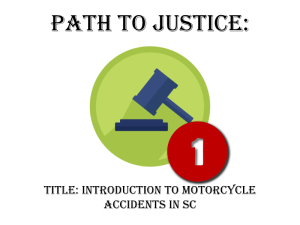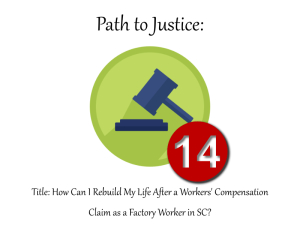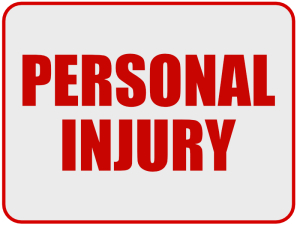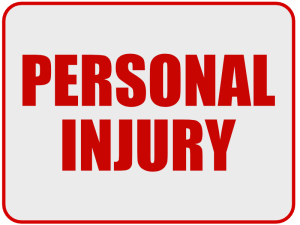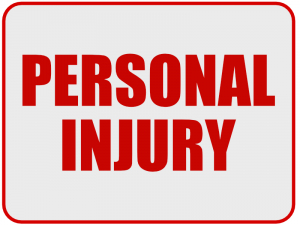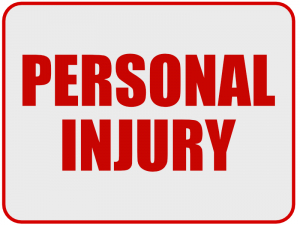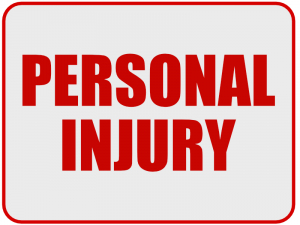Introduction
When it comes to motorcycle accidents, the damages sustained can be both tangible and intangible. Understanding the difference between economic and non-economic damages is
crucial for victims seeking compensation. This article will delve into these two categories of damages, providing insights into what can be claimed in the aftermath of a motorcycle accident.
- Economic Damages
- Medical Expenses: This includes the cost of immediate medical care, ongoing treatment, rehabilitation, and any future medical expenses related to the accident.
- Lost Wages: If the accident results in time off work, you can claim compensation for lost wages. This also includes loss of earning capacity if you're unable to return to your
previous job.
- Property Damage: This covers the cost of repairing or replacing your motorcycle and any other personal property damaged in the accident.
- Non-Economic Damages
- Pain and Suffering: This is compensation for the physical pain and emotional distress experienced due to the accident.
- Emotional Distress: This includes compensation for anxiety, depression, and other emotional traumas resulting from the accident.
- Loss of Consortium: This refers to the impact of the accident on your relationship with your spouse, including loss of companionship and sexual relations. These damages
are assessed for the spouse of the injured party.
- Calculating Economic Damages
- Documentation: Keep all bills, invoices, and receipts related to medical expenses, property damage, and other economic losses.
- Expert Testimony: In some cases, experts like medical professionals or vocational rehabilitation specialists may be consulted to estimate future economic damages.
- Calculating Non-Economic Damages
- Subjective Nature: Non-economic damages are subjective and harder to quantify. Factors like the severity of the injury, the impact on quality of life, and emotional trauma
are considered.
- Multiplier Method: One method used to calculate non-economic damages is the multiplier method, where the economic damages are multiplied by a certain number
(usually between 1.5 and 5, and normally 2-3 times the economic damages for settlement) based on the severity of the non-economic damages.
- Punitive Damages
- What Are They: Punitive damages are not tied to the victim's losses but are meant to punish the at-fault party for particularly reckless or negligent behavior.
- State Regulations: The availability and limitations of punitive damages vary by state. In South Carolina, punitive damages are allowed but generally capped by a reasonable
multiplier of the non-punitive damages, and can be contested on Constitutional grounds.
- Legal Assistance in Claiming Damages
- Role of a Lawyer: An experienced attorney can help you accurately calculate both economic and non-economic damages, ensuring you claim the full compensation you're
entitled to.
- Negotiations and Litigation: A lawyer can also negotiate with insurance companies on your behalf and represent you in court if necessary.
Conclusion
Understanding the difference between economic and non-economic damages is crucial for anyone involved in a motorcycle accident. Being well-informed and consulting with legal
professionals can significantly impact the amount of compensation you can claim.
Note: This article provides a general overview of economic vs. non-economic damages in motorcycle accidents. Laws and regulations can change, and it's always advisable to consult
with a legal professional for the most up-to-date and personalized information.
Introduction
South Carolina, with its scenic routes and warm climate, is a haven for motorcycle enthusiasts. The freedom of the open road, the wind in your face, and the thrill of the ride are unmatched.
However, this freedom comes with its risks. Motorcycle accidents, unfortunately, are a reality on South Carolina roads, and understanding them is crucial for every rider and road user.
The Reality of Motorcycle Accidents in South Carolina
Motorcycles, while offering an unparalleled sense of freedom, also expose riders to certain vulnerabilities. Without the protective shell of a car or truck, motorcyclists often bear the brunt of
collisions, leading to severe injuries or even fatalities.
- Statistics Snapshot: In recent years, South Carolina has witnessed a significant number of motorcycle accidents. [Insert specific statistics if available, e.g., "In 2020, there were X
motorcycle accidents resulting in Y fatalities."]
- Common Causes: While reasons vary, some common causes include speeding, impaired driving, lack of visibility, and failure to yield right of way.
The Unique Challenges Faced by Motorcyclists
- Visibility Issues: Motorcycles, due to their smaller size, can easily be overlooked by other motorists, especially in heavy traffic or poor lighting conditions.
- Road Hazards: What might be a minor inconvenience for a car, like a pothole or wet leaves, can be a significant hazard for motorcyclists.
- Limited Protection: Despite helmets and protective gear, motorcyclists lack the comprehensive protection that a vehicle provides, making them more susceptible to injuries.
The Legal Landscape in South Carolina
South Carolina has specific laws and regulations pertaining to motorcyclists, from helmet requirements to rights on the road. Understanding these laws is not just about compliance;
it's about ensuring safety and knowing your rights in case of an accident.
- Helmet Laws: South Carolina mandates helmets for riders under the age of 21. While older riders have a choice, the safety benefits of helmets are undeniable.
- Insurance Requirements: Like other vehicles, motorcycles in South Carolina must be insured. This insurance plays a crucial role in the aftermath of an accident.
Why This Series Matters
Motorcycle accidents can be life-altering. Beyond the immediate physical injuries, they can lead to long-term trauma, financial burdens, and legal complexities. This series aims to shed
light on every facet of motorcycle accidents in South Carolina, from prevention to legal recourse. Whether you're a seasoned rider, a beginner, or just someone sharing the road with
motorcyclists, this knowledge is invaluable.
Conclusion
As we embark on this series, our goal is to provide a comprehensive guide to motorcycle accidents in South Carolina. With insights from legal experts at The Bill Connor Law Firm and
real-life case studies, we hope to equip our readers with the knowledge to navigate the challenges of the road safely and confidently.
Note: This article provides a general overview and introduction to the topic. Subsequent articles will delve deeper into specific areas related to motorcycle accidents in South Carolina.
Always consult with a legal professional for detailed guidance on individual cases.
Getting back on your feet after a workplace injury can be a challenging and often daunting task. You've navigated the workers' compensation process, but now you're facing the reality of moving
forward and rebuilding your life post-claim. Here are some important steps to help you get back on track.
Physical Rehabilitation
The severity and nature of your injury will determine your physical recovery process. It's crucial to follow the prescribed physical therapy or rehabilitation program from your healthcare provider.
Consistent participation can improve your functionality and health, potentially hastening your return to work if possible.
Vocational Rehabilitation
If your injuries prevent you from returning to your previous role, you may need vocational rehabilitation. These services, often covered by workers' compensation, can help you gain new skills for
different types of work. Don't hesitate to explore this option with your compensation lawyer or claims adjuster.
Mental Health Support
Dealing with an injury and its aftermath can take a toll on your mental health. Consider seeking support from mental health professionals. Coping strategies can help manage stress, anxiety, and
other emotional challenges associated with your injury and recovery process.
Financial Planning
After settling your workers' compensation claim, it's time to reassess your financial situation. With the help of a financial advisor, you can plan effectively for your future, taking into account your
current earning capacity and future medical expenses.
Legal Advice
Even after your claim, keeping in touch with your legal representative is advisable. They can provide guidance regarding any future medical needs related to your injury and ensure you understand
the long-term implications of your settlement.
Support Networks
Remember, you're not alone in this journey. Leverage your personal support networks - family, friends, and community resources. There are also support groups for individuals who've experienced
workplace injuries, providing a platform to share experiences and gain insights.
Continuing Education
Consider furthering your education or training. This can open up new employment opportunities and help with job security in the future. Many organizations provide scholarships or financial aid for
injured workers seeking to enhance their skills.
Conclusion
Adjusting to life after a workers' compensation claim can present challenges. This transition often requires strategic planning and the right resources. More importantly, it necessitates the support
of a dedicated legal team that understands the complexities of such claims. The Bill Connor Law Firm can provide that unwavering support, ready to assist as you navigate this new phase of your
life. If you need help managing your workers' compensation claim or have questions about the process, know that The Bill Connor Law Firm stands beside you. Remember, it's your fundamental
right to work in a safe environment and receive full and fair compensation for any injuries sustained.
Hiring a personal injury lawyer can be a daunting task, especially if you have never had to go through the process before. There are many things to consider when selecting an attorney to represent you in a personal injury case, and it is important to take the time to do your research and make an informed decision. In this article, we will discuss some of the key factors to consider when hiring a personal injury lawyer.
First and foremost, you should look for an attorney who has experience handling cases similar to yours. Personal injury law is a broad field, and attorneys may specialize in different areas such as car accidents, slip and falls, medical malpractice, and more. It is important to find an attorney who has experience in your specific area of need, as they will be better equipped to handle the unique challenges and complexities of your case. You should also consider the attorney's track record of success. While it is not uncommon for personal injury cases to go to trial, most are ultimately resolved through settlement. An attorney with a strong track record of successful settlements can be a valuable asset in helping you secure the compensation you deserve. Be sure to ask about the attorney's past case results and their approach to settlement negotiations.
Another important factor to consider is the attorney's reputation within the legal community. Look for an attorney who is well-respected by their peers and has a good reputation for ethical behavior and professionalism. You can often find this information by asking for references or by checking with your local bar association.
In addition to these factors, you should also consider the attorney's availability and willingness to communicate with you. It is important to have an attorney who is responsive to your needs and is willing to keep you informed about the progress of your case. You should also consider the attorney's fees and billing practices, as well as their level of accessibility and willingness, to answer your questions.
Finally, you should trust your instincts and choose an attorney who you feel comfortable working with. Personal injury cases can be emotionally and financially taxing, and it is important to have an attorney who is compassionate and understanding. In summary, hiring a personal injury lawyer in Orangeburg, South Carolina, is a significant decision that requires careful consideration. By doing your research and considering factors such as experience, track record, reputation, and communication, you can choose an attorney who is well-suited to help you achieve the best possible outcome for your case.
In many cases of an accident involving clear liability and personal injury, parties are able to settle prior to the injured party filing suit. Usually, settlement negotiations are between the hurt party and the insurance carrier of the at-fault party. If the accident was a car wreck, and the at-fault party was not insured, normally the injured party’s uninsured motorist coverage will settle to cover the damages sustained (hint: Always request uninsured motorist coverage, as it is optional). Even if cases don’t settle prior to filing suit, they will still settle during the litigation process as parties get more information about the valuation of the case during discovery. Before going to trial in South Carolina under most circumstances involving injury, parties must attempt mediation before trial. Few cases actually go to trial, but it’s critical to understand what to expect at trial as a party to a lawsuit.
First, it’s important to understand the sequence of events at trial. The trial will start with lawyers in front of the judge making arguments about what happens at trial (motions to limit what the other party can present to a jury, jury instructions, etc.). Then the parties pick a jury, which will involve both the parties and their lawyers deciding which jurors to be struck and which to allow to be seated (each side has a specific number of “strikes” and can also argue for striking jurors for cause like potential bias). It’s very important to pay close attention to information about the jurors in trying to determine which potential jurors would be best on the jury panel, and know that parties, not lawyers, have the final determination. Then comes opening arguments by each party’s lawyer (Plaintiff bringing the case is generally first), in which the lawyer tells the jurors what evidence will be presented and how that evidence helps prove the case by the relevant law. Then lawyers will present respective case to the jurors, starting with the Plaintiff's attorney. This involves calling all witnesses, including parties, and going through direct examination by asking questions and authenticating evidence (documents, pictures, etc.) that will go to the jury, then allowing for the opposing side to cross-examine witnesses. Finally, lawyers end their case with closing arguments, in which they remind juries of the evidence and testimony, and why they must deliver a verdict for their respective client.
During trial, including while the lawyer is making arguments to the judge and jury and questioning witnesses, it’s important for the party to remain actively involved in the process. Decisions about striking jurors are crucial and involve the party. Parties should help provide lawyers with questions they should consider asking on cross-examination of witnesses after watching the direct examination. In many cases, the parties know a witness personally and understand them better. Parties also know the details of their own case best, like what happened during the accident or the actual treatment performed, and are in a position to provide critical input to lawyers. Additionally, parties can watch jurors while lawyers are busy and can pick up on body language that might be helpful to lawyers. They may catch a juror falling asleep, or even come to knowledge of why a juror should be dismissed. Finally, parties should be able to help the lawyer to think about how to best present closing arguments.
The parties must live with the final result of the trial, the verdict, and have the greatest stake in that verdict. The lawyers will move on to other cases (potentially file an appeal). The party at trial is must be involved throughout the process and know they did everything possible to bring the best result.
For different reasons, a probate case may involve a personal injury claim of the person who died and who’s estate is being probated. Sometimes, it is due to an injury involving the liability of another party which killed the person, either immediately or after a time of pain and suffering. Other times it is due to a person being injured due to the liability of another and that injured person dying during the litigation process (whether by the injury at the heart of the lawsuit or by any other reason). When a Personal Representative is probating the estate of someone who died (decedent) with a personal injury claim, it’s important to understand how that process works within the probating of the estate. Let me explain.
First, it’s important to understand that South Carolina Law states that the Personal Representative (person appointed to Probate a decedent’s estate) has the duty to continue a personal injury lawsuit started before the death on behalf of the decedent, or even to bring a lawsuit on behalf of the decedent for injuries which caused his death. If the person dies during litigation of a personal injury matter, the Personal Representative (PR) will usually work with the lawyer(s) bringing the suit against the liability party. The litigation process remains the same, though in practice suits will usually settle at this point. If not, the suit continues with the PR acting as the Plaintiff, including making the decisions about litigation and settlement and strategy. When a settlement or jury verdict resolves the case, the proceeds of the case go into the Estate to be divided to the beneficiaries of the decedent’s will or intestate beneficiaries. The PR has the duty to work with the attorneys through resolving the matter, and this can include a separate hearing for approval of any settlement by a judge.
In the case of someone dying from the liability of another in South Carolina, the PR has the duty to bring a suit (or seek a negotiated settlement) for the pain and suffering the decedent suffered before death. This is called a “survival action”. Other family members can bring separate actions for what damages the death caused them. For example, if the decedent is a breadwinner of a family and is killed by the liability of another, the spouse and children can bring a “wrongful death” action for the loss of money (and other losses) from the death of the breadwinner and caregiver. Usually, the same people who can bring action under wrongful death will also receive the proceeds of a survival action, as they are usually the beneficiaries by Will and/or intestate proceedings.
The PR will generally have attorney assistance for probating an Estate, but will need to understand and follow and prosecute personal injury cases while probating an Estate. It’s all part of the duty to the person who died, and ensuring rights are vindicated even after death.
If you are in need of an attorney to assist in matters of probate and or personal injury cases in South Carolina, please contact the Bill Connor Law Firm, we are here to help.
When an accident/incident causing damages occurs and it involves liability of another party or parties, evidence becomes crucial. Unless a party admits and doesn’t contest liability, evidence drives either successful settlement or a jury award. Starting after the accident, it’s important to gather the right evidence at the earliest possible time.
When it comes to evidence, testimony from witnesses, including parties to the accident, is accepted as evidence in Court. The statements of the parties (or friends/relatives) will not hold as much weight as witnesses unconnected to parties with no interest in the matter. Parties are assumed to be biased, while disinterested witnesses are seen as more credible. Therefore, getting points of contact of potential witnesses to an accident is critical. Beyond witnesses to the accident, witnesses to the level of injury (damages) are also important to proving the level of damages.
The damage to vehicles in a car wreck is solid evidence showing the nature of the impact and therefore liability. It’s important to have pictures before vehicles are repaired. Additionally, other material items effected by the wreck help tell the story and show liability. Finally, most vehicles have a “black box” vehicle recorder which tells what happened to the vehicle before, during, and after the accident. Third parties will usually pull and give the read-out from the vehicle black box.
Medical documents of assessment of accident injuries, and particularly medicals from right after the accident, are critical. They prove the injuries and level of injuries and help prove the connection of the injury to the accident. This evidence will likely continue well after the accident, and it’s important to keep all these records. Similarly, evidence of lost wages from being out of work due to the accident is important. Any other such “losses” should be memorialized as evidence.
Despite the impression of many Americans about the number of personal injury cases going to jury trial, the reality is that the vast majority settle at some point between the accident and a jury verdict. Though you may hire an attorney to handle your case, it’s important to understand settlements and settlement negotiations to obtain the best result possible. In the end, the client and not the lawyer must make the critical decisions of whether to settle and for what amount, so this knowledge is critical.
The first thing to understand is that vehicle property damage will normally be handled separately from personal injury damages of the same accident because insurance carriers separate the two and will resolve separately. The vehicle claim is normally resolved without lawyer involvement. The lawyer would have to work on contingency unless you were to pay his hourly fees, so he would collect 1/3rd of the damage amount offered for property damage. The insurance carriers normally handle the property damage among adjusters, and the amount is a liquidated damages amount for repairs or total loss amount by Blue Book value. Having to pay a lawyer for property damage is not going to be worth it in almost all cases of resolving property damage.
For personal injury, the injured and non-liable party’s attorney will usually reach out to the liable party’s insurance carrier (sometimes directly and sometimes through the liable party). Usually, lawyers will send the initial law enforcement determination of liability (in South Carolina, the FR-10) and medical bills along with a demand. Normally, the lawyer will demand the limits of the liable party insurance to settle the case, particularly as most drivers will have the $25,000.00 limits and medical bills will normally run at least $3-4,000.00 if the injured party was taken by ambulance to the emergency room for evaluation. A reason the lawyer will likely demand limits is to keep his position to come down if and when the insurance carrier sends a counter-offer. Understand that if the limits are high and the medical bills are low the initial demand may not be the limits but still a liberal amount.
The insurance carrier will determine liability (note: The FR-10 report would not be admissible in court as the law enforcement officer has not been deemed an “expert” in accident reconstruction, and so even if the FR-10 determines liability the insurance carrier may still dispute). Then the insurance adjuster will look at the medical notes and bills and consider associated damages like pain and suffering. He may also consider lost wages if that evidence is sent from the attorney. The insurance adjuster, if he has accepted liability, will likely make a “low ball” counter-offer of a number just above the bills presented. Then the injured party can come down to a lesser number from the initial demand in a counteroffer. In most cases, if the injury isn’t something permanent or involving prolonged treatment (like a broken bone) a good settlement would normally be 2-3 times the medical bills. That can vary substantially based on the venue being traditionally pro-plaintiff or not.
If the parties are not able to settle, the injured party makes the decision about bringing a lawsuit. It’s important to understand that in bringing a lawsuit a party will start building up debt in litigation costs that will come out of his 2/3rds of any settlement or jury award. Therefore, if the settlement is anywhere near the insurance policy limits it’s probably best to consider settlement.
Throughout the litigation, process parties can and do settle. In fact, in South Carolina parties are required to attempt “mandatory mediation” if they haven’t settled before trial. This involves an outside mediator attempting to help parties find common ground, and many cases are settled at mediation. Importantly, parties can talk to each other openly at mediation without having to worry that the information could be used at trial. Settlement negotiations are confidential. Even if cases are not settled at mediation, they can still be settled afterwards and with the benefit of what is learned through discovery and at mediation. In fact, many cases settle even during trial before the jury goes to deliberation. The benefit of mediation is that the parties have control over the process. Juries can be very unpredictable, so become a risk for both parties.
Remember that you, and not your lawyer makes the key decision of whether to settle or not. Keep abreast and be ready for settlement decisions at any time.
After a car wreck or slip/fall accident and decisions come about bringing a lawsuit for personal injury, the question of venue can be the most important for success a successful outcome. “Venue” is essentially the court you decide to bring a case, and it must be a court with jurisdiction over the parties. In South Carolina (as in many other states), jurisdiction in a state Circuit Court comes by either the county of residence of a Defendant in a lawsuit or the county in which the incident occurred. For cases involving damages less than $7500, County Magistrate Courts are a possible venue, but only have jurisdiction over the case if the Defendant is a resident. The other potential venue is Federal District Court for cases involving either Federal law or diversity of the states of the parties in very high dollar cases. Federal jurisdiction is extremely rare in personal injury cases involving car wrecks and slip/falls, so we will focus on state Circuit Courts. In an accident, if the Defendant is hurt in the same county as his residence, venue is going to be that county. If the accident occurs outside the Defendant’s residence, that gives options for which venue to file. Additionally, if multiple Defendants are involved, that could offer more than two counties to file. This is where decisions are made which have high significance. There are a number of factors in deciding which venue to seek in the event of multiple venues available. First and foremost is to acknowledge that the jury pool will come from that County. Some jury pools, for various different reasons, are much better for those bringing cases. They are usually considered more “Liberal” counties and usually correspond to politically Liberal counties. They are more likely to offer more and higher jury awards. The more “conservative” counties are just the opposite and are much better for defending cases. As would be expected, the more conservative upstate counties like Greenville are better counties to defend cases, while counties in the most Democratic Counties in the Sixth Congressional District are most Liberal and offer the most and some of highest verdicts. Orangeburg SC, being in the heart of the Sixth District, is one of the best places to bring a lawsuit, and one of the toughest places to defend. Within venues, it’s also important to consider your own county residence and similarities to the people of the venues. If you live in the venue you bring the suit with a solid reputation, it becomes more likely the “jury of your peers” will include those who would be favorable to you. Additionally, some counties have similar attributes among the people which may or may not create a sympathy with you bringing a lawsuit. For example, there can be a demographic of people that are historically sympathetic to juries in the counties and historically receive the greatest jury awards. For example, some venues have large medical centers and therefore a high population of those in health care (and relatives/friends of those in healthcare). They will generally be more sympathetic to a plaintiff who is a health care provider in the local hospitals. This is something to discuss in detail with your attorney. One of the key things to understand is that the human connection with the jury, or potential for connection with the jury, is what drives the best results in a personal injury case. Pay attention to it, and plan wisely when filing suit.

